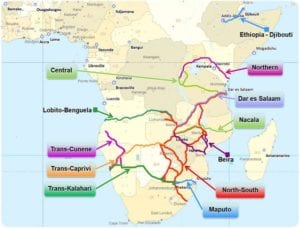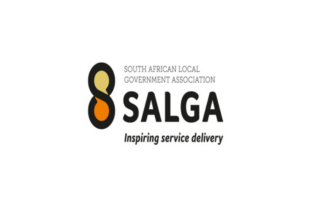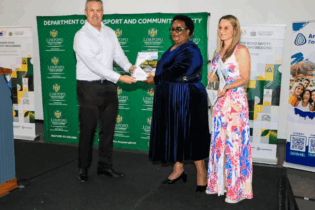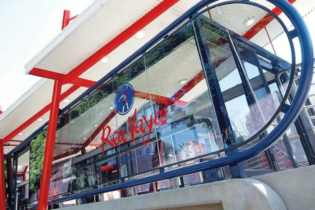Transport costs in landlocked African countries account for a “staggering” 70% of the value of exported goods due to the lack of infrastructure, Roelof van Tonder, CEO of the Built Environment Professions Export Council, said on Wednesday.
Citing figures from the African Union’s Programme for Infrastructure Development in Africa, Mr van Tonder, speaking as part of an expert panel at the Infrastructure Africa conference in Sandton, Johannesburg, said savings of up to $172bn could be achieved through a properly implemented African regional transport network. He said a lack of regional integration and co-operation prevented long-term infrastructure project planning. Kudzanayi Bangure, team leader at consultancy Frost & Sullivan’s African infrastructure research programme, said greater intraregional trade triggered faster infrastructure development. Governments had to work more closely with the private sector, he said, especially in the mineral and energy sectors, which created opportunities for the development of infrastructure. Underinvestment in parallel sectors such as the distribution of power and water has been identified by Frost & Sullivan as among key challenges to the roll-out of projects. “Once you don’t have those key resources, you end up with all these projects being stopped at critical phases, which gets them delayed or cancelled,” Mr Bangure said. Project funding is another major constraint. Mervin Chetty, GM for Africa at Transnet, South Africa’s state-owned ports and rail company, said the African Development Bank estimated the continent’s infrastructure investment needs over the next decade at $93bn a year. Of this, transport infrastructure needs amounted to $14,2bn a year, with rail in particular requiring $3bn a yearMr Bangure said potential investors in African infrastructure should take note of a model developed in China that provided end-to-end solutions to governments lacking the planning, engineering and funding resources to execute infrastructure development projects.
African governments, businesses and communities should co-operate to implement all the plans and master programmes that had already been drawn up, Mr Chetty said. “There are a lot of plans and action programmes, and we need now to implement those,” he said. “As Transnet and as South Africa Incorporated, we should be working together as teams — whether as state-owned enterprises, development finance institutions or regional economic communities, we should be working together and going in with complete solutions, including financing solutions.” Source: businessday.co.za





